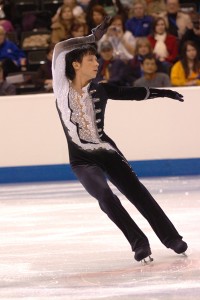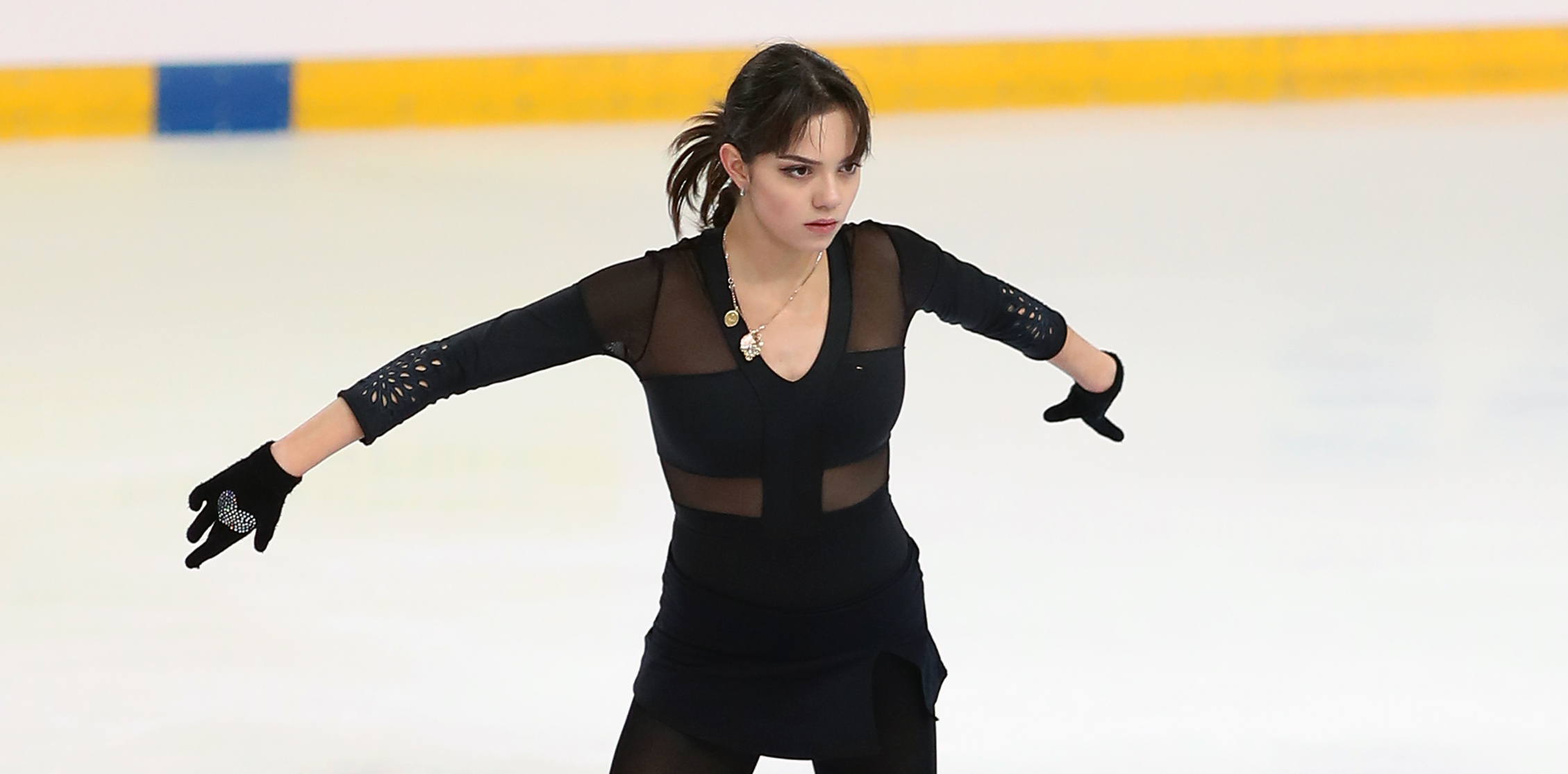 For the first time since finishing seventh at 2005 Skate Canada, Johnny Weir is leaving a regular season Grand Prix event without a medal. He finished fourth overall with 198.55 points at Rostelecom Cup in Moscow, Russia.
For the first time since finishing seventh at 2005 Skate Canada, Johnny Weir is leaving a regular season Grand Prix event without a medal. He finished fourth overall with 198.55 points at Rostelecom Cup in Moscow, Russia.
The competition was dominated by Olympic Champion Evgeni Plushenko of Russia, who won by a margin of more than 25 points, with an impressive score of 240.65. His free skate alone would have placed him 10th in the event.
Grand Prix Final silver medalist Takahiko Kozuka (215.13) of Japan placed second in both the short program and free skate to secure a silver medal. Russian Artem Borodulin, ninth at the Russian Grand Prix event last year, moved up from fourth place to win the bronze with a personal best 201.55.
Weir finished sixth in the free skate with the debut of is “Fallen Angel” program. In the opening half, he did not perform a combination or a triple axel, which cost him valuable points in technical mark. He started with a triple flip, which was supposed to be a triple toe, then landed a double axel, a triple Salchow and another double axel before performing a Level 3 flying sit spin and Level 3 circular footwork.
The three-time U.S. Champion improved technically in the second half of the program. Following a double loop, he landed a triple lutz-double toe and a then threw in a triple axel, which received a negative grade of execution because he stumbled on the landing. He ended his free with a Level 3 flying camel, a Level 3 straight line step sequence and a Level 4 change foot combination spin.
Weir’s impressive Grand Prix resume includes bronze at 2005 Cup of Russia, bronze at 2006 Skate Canada, silver at 2006 Cup of Russia (now known as Rostelecom Cup), gold at 2007 Cup of China, gold at 2007 Cup of Russia, silver at 2008 Skate America and silver at 2008 NHK Trophy. He was fourth at the 2007 Grand Prix Final and third last year.
U.S. silver medalist Brandon Mroz (181.80) improved from last place to seventh overall following a fourth place free skate. After opening with a solid quadruple toe, he fell on the triple axel, but recovered to perform a triple flip-double toe-double loop combination, although the first jump had the wrong take off edge.
The second half of Mroz’s performance to selections from Beethoven was highlighted by a triple lutz-triple toe, the highest scoring element of his program.
Late Friday, the U.S. Champions Meryl Davis and Charlie White (100.08 points), who were fourth at the 2009 World Championships, extended their lead in the ice dancing competition to almost 15 points with a Bollywood inspired original dance. The original dance earned them 62.21.
“We had a really nice original dance out there today,” White said. “I feel like we had a very good connection and we were able to do our elements pretty well. (There were) some Level 3s, we still like to get Level 4s, but overall we are very happy and ready to move on to the free dance.”
Italians Anna Cappellini and Luca Lanotte are currently in second place with 85.31 following a second place compulsory and original dances. Russians Ekaterina Rubleva and Ivan Shefer are third with 81.25 heading into the free dance, which is the final event of the Rostelecom Cup.
Rostelecom Cup is the second event of the 2009 International Skating Union (ISU) Grand Prix of Figure Skating circuit. The series, now in its 15th season, consists of six international events in a cumulative, point-scoring format. The top six scoring athletes in each discipline move onto the Grand Prix Final, Dec. 3-6, in Tokyo, Japan, which will be combined with the ISU Junior Grand Prix of Figure Skating Final for the second consecutive season.
The six Grand Prix events are Trophee Eric Bompard, Oct. 15-18, in Paris, France; Rostelecom Cup, Oct. 22-25, in Moscow Russia; Cup of China, Oct. 29-Nov. 1, in Beijing, China; NHK Trophy, Nov. 5-8, in Nagano, Japan; Skate America, Nov. 12-15, in Lake Placid, N.Y.; and Skate Canada, Nov. 19-22, in Kitchener, Canada.
The points toward the Grand Prix Final that are awarded for each place are 15 points for first; 13 points for second; 11 points for third; nine points for fourth; seven points for fifth; five points for sixth place; four points for seventh place; and three points for eighth. In pair skating, only the top six receive points.
__________
Figure Skaters Online strives to be an accurate source of information related to the sport of figure skating. To report an error, please e-mail the news editor. Include the article date and title in your e-mail.



